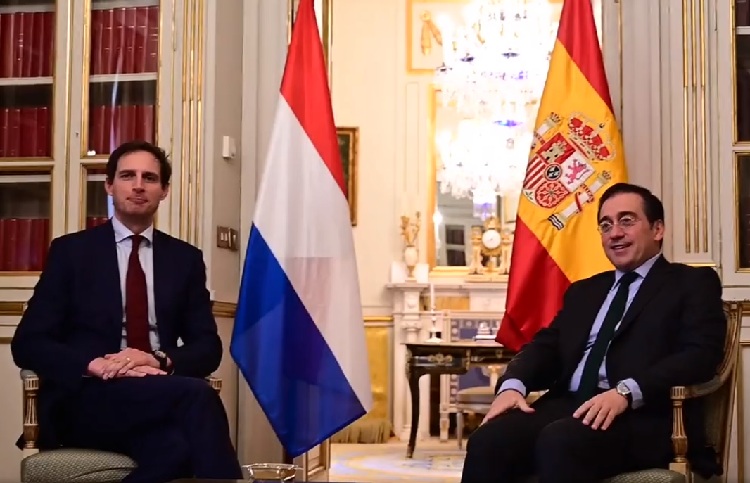Eduardo González
The acting Minister of Foreign Affairs, José Manuel Albares, will receive today at the ministerial headquarters of the Viana Palace, in Madrid, the new European Commissioner for Climate Action, the Dutchman Wopke Hoekstra.
The conservative Wopke Hoesktra was confirmed for the position by the European Parliament last Thursday, with 279 votes in favor, 173 against and 33 abstentions. In the same session, the Slovak Maros Sefcovic was appointed commissioner for the European Green Deal and executive vice president of the European Commission, following the departure of Frans Timmermans to run for the legislative elections in the Netherlands. Hoesktra’s appointment has been harshly criticized by environmental organizations because of his professional career in the oil sector (he worked until 2006 for the giant Shell in several European countries) and because of his lack of experience in climate issues.
Before his arrival at the European Commission, Wopke Hoekstra held, successively, the positions of Minister of Finance and Foreign Affairs of the Netherlands in the Government of also conservative Mark Rutte. From both portfolios, especially the first, Hoekstra was involved in some of the most tense moments between the Governments of Spain and the Netherlands during the negotiations on the European recovery fund after COVID-19 and on the Spanish proposals to reduce energy prices.
Wopke Hoekstra became particularly unpopular in southern Europe during the debate over the recovery plan, when Spain and Italy (the two European countries most affected by the first wave of the pandemic) called for EU help to relaunch their economy. , including the issuance of joint debt at the community level, compared to the more intransigent position of the so-called “frugal countries” (clearly led by the Netherlands).
In that context, Hoekstra limited himself to responding, in March 2020, that both countries “had not reformed their economies” when they could have done so and these problems would have been avoided if they had saved and accumulated sufficient reserves to face the crises, for which he claimed an investigation into the budgetary difficulties of southern European countries. The harshest response came from the Portuguese Prime Minister, António Costa, who described these statements as “repugnants.”
Precisely, during his speech in the European Parliament committees to defend his appointment to the European Commission, Wopke Hoekstra acknowledged that, “at the beginning of the pandemic”, he had not taken “the difficulties of some Member States into sufficient consideration”, therefore who expressed his regret and expressly addressed these countries to admit: “I should have done it differently.”







